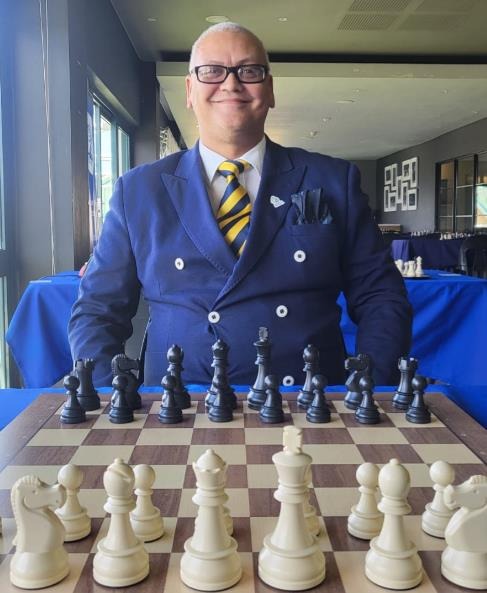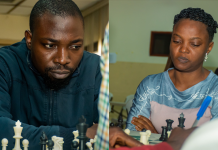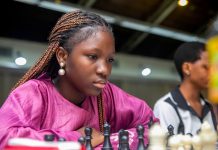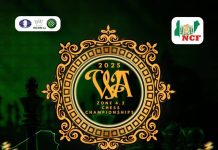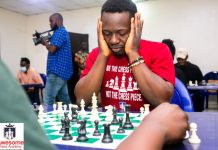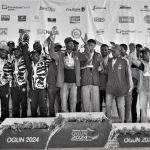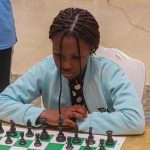Every two years, South Africa witnesses an exciting battle of wits and strategy in the prestigious South African Closed Chess Championship. This event, regarded as the peak of chess competitions in the country, has a rich history dating back decades.
Dr. Lyndon Bouah, a seasoned chess player, reminisces about his early days in the championship. His journey began in 1989 in Bellville South and continued in 1991 at Pentech, Cape Town, where he secured second place both times under CAPSA’s banner. The championship has seen luminaries like Wolfgang Heidenfeld, who obtained the national title an impressive 8 times between 1939 and 1959 on the last occasion according to Reitstein, he was also the champion of Ireland. Heidenfeld played in the Olympiad for South Africa and Ireland.

Dr Bouah wrote “Heidenfeld’s greatest success was in 1955 when he tied with W.J Muhring above ex world champion Max Euwe at the Johannesburg International”. He penned insightful articles for the South African Chess player and authored acclaimed books like “Lacking the Master Touch” and “Draw!” which was an acclaimed collection of drawn games from master play.
Dr. Bouah remarked that it is unlikely we will witness another player dominating with 8 championships over 20 years. However, Charles de Villiers holds the second spot with 6 titles, followed by IM Watu Kobese with four championships to his name.


In 1978, the chess scene evolved with the formation of the South African Chess Association (SACA), advocating for non-racial chess. He mentioned that SACA organized its own Open and Closed Chess Championships, nurturing talents like Deon Solomons, Maxwell Solomon, Gordon Lawrence, Shabier Bhawoodien, Jannie Saffier, Mark Lewis, Roland Willenberg, Kenny Solomon, and himself (Dr. Bouah) who left a mark in the chess arena.
A notable debate surrounds the 1993 and 1994 South African Trials, contested by top players and considered by many as de facto Closed Championships. Dr. Lyndon Bouah argues for their inclusion in the championship’s history, emphasizing the importance of recognizing all top-tier competitions. In his words, “I am going to submit that they were and must be counted as such because the best players in the country were invited to play and participated in both events. So, for the completeness of the record books, I am enclosing both those events with winners as well as the winners of the SA Closed played by the black chess body as those records must also be counted.”
Furthermore, In the SA Closed Chess Championship Table section below, Keith Rust provided a table with missing information that was supplemented by Dr. Lyndon. This includes details about tournaments hosted by SACA and CAPSA from 1985 to 1991, such as the names of winners and venues. CAPSA events are distinguished by a bolder color and number in the table.
The author remarked that it is essential for historians and the broader chess community to acknowledge all these events as part of our chess history. They should be documented on platforms like Wikipedia, chess reporting websites, and in books. Recognizing that two SA Closed championships were held during apartheid is crucial, and they deserve the necessary attention and recognition.






Finally, the second rounds of the SA closed chess championship played on the 26th of March, 2024 were also recorded with their results below;
Open Section

Ladies Section

Senior Section

From historic victories to fundamental moments, the South African Closed Chess Championship entails the passion and dedication of players striving for excellence. As the chessboard develops, so does the legacy of this legendary tournament, displaying South Africa’s vibrant chess culture.



